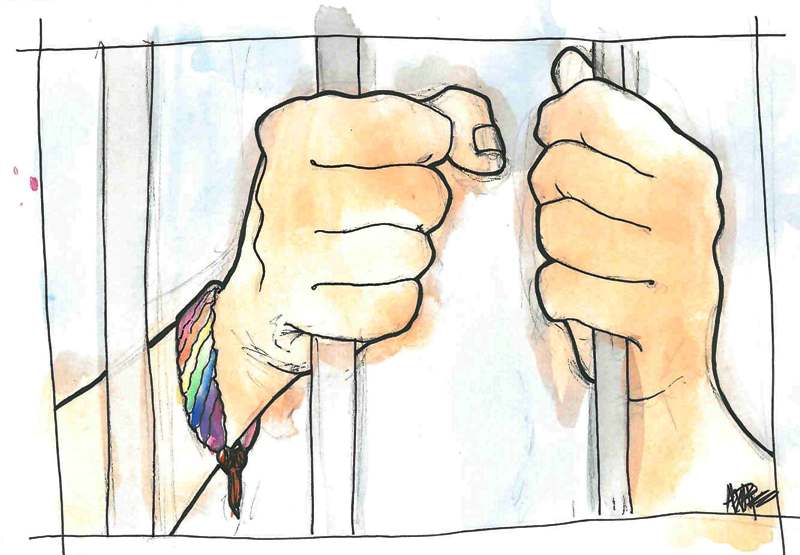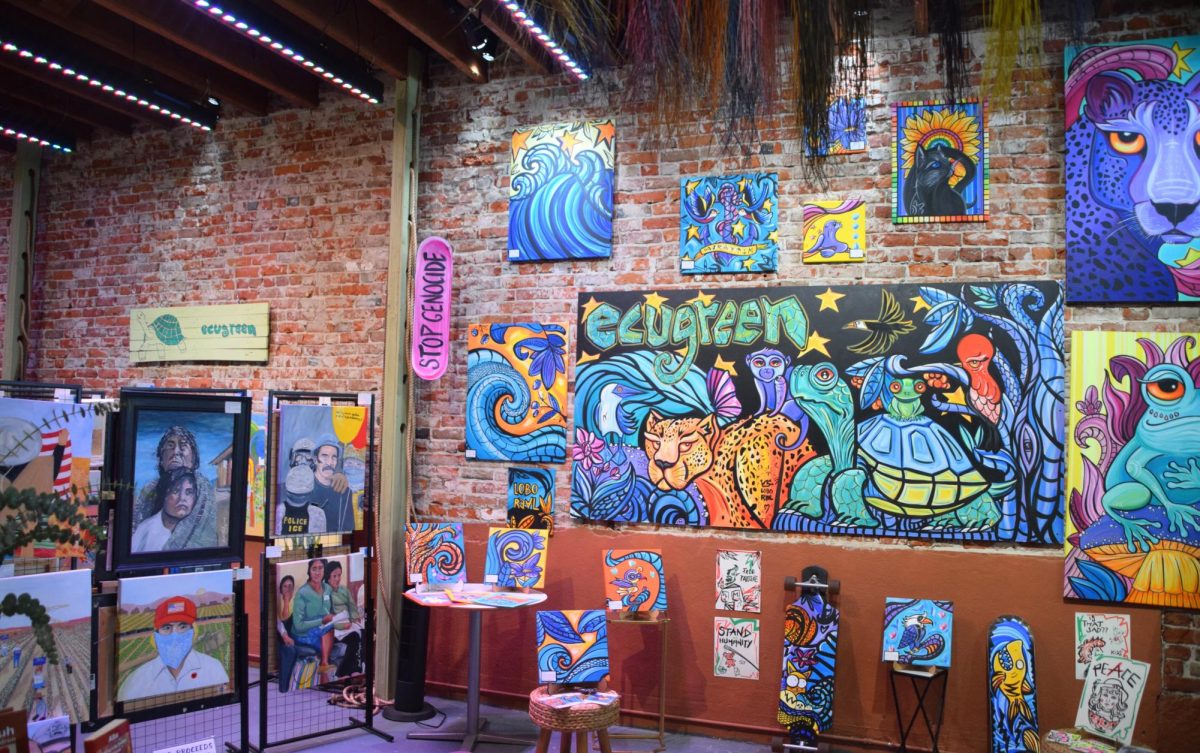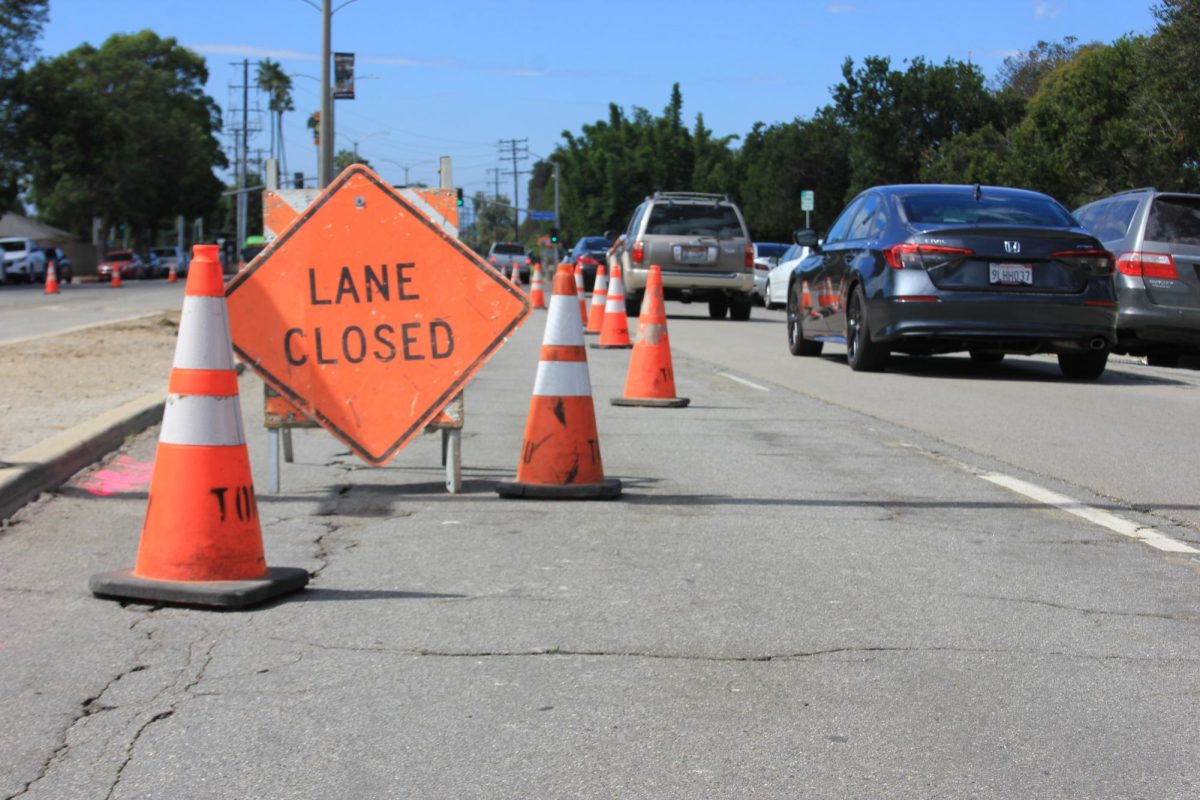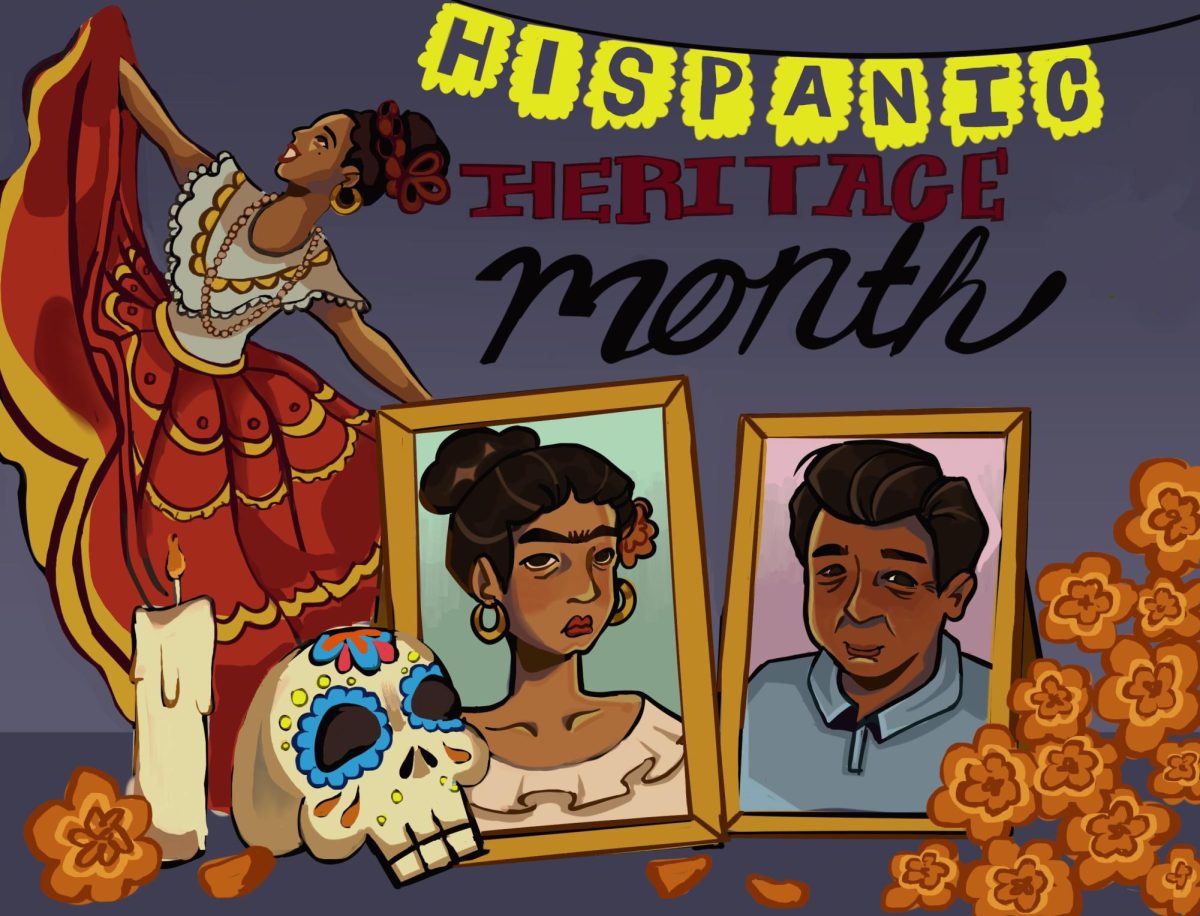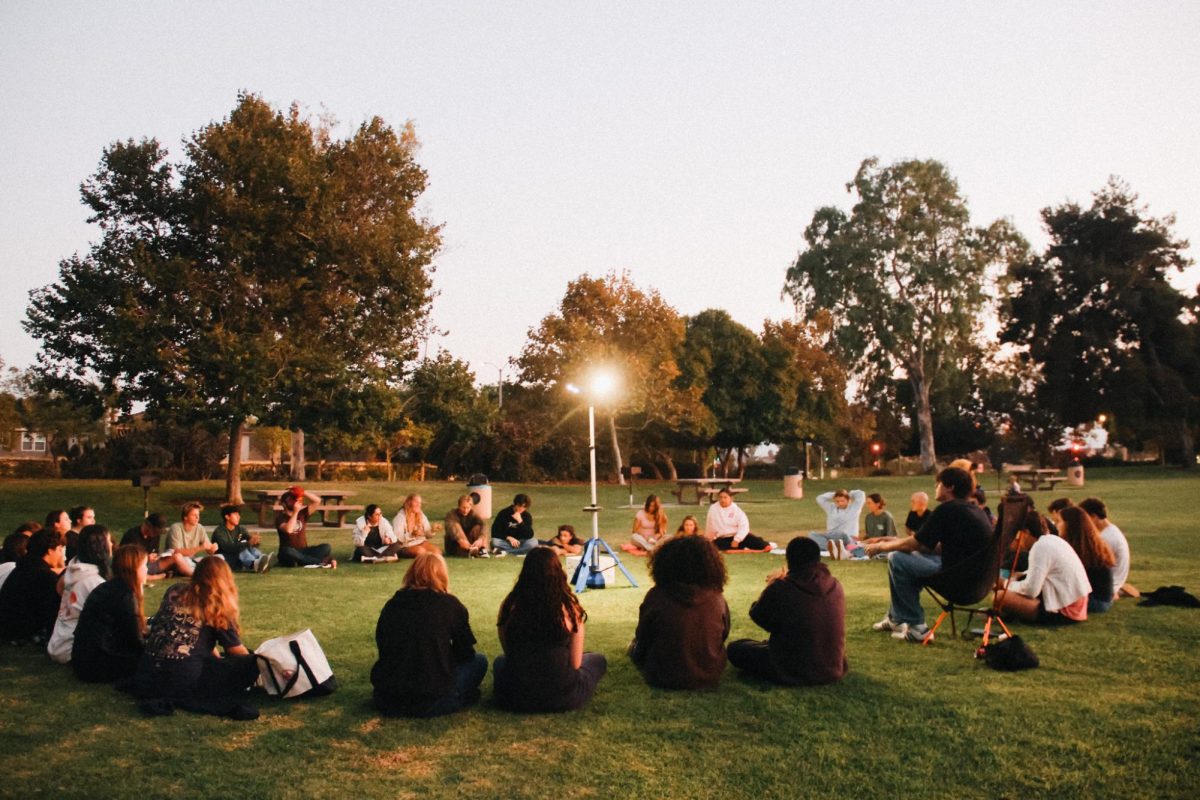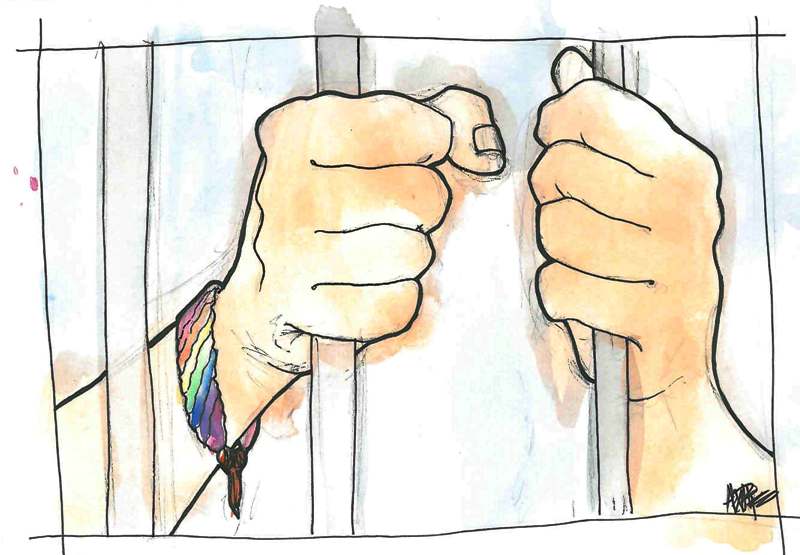
It wasn’t the first time Amanda Meherin had been jumped.
“It was late. I was on the phone, so I was kind of distracted, and when I hung up, two guys ran after me and then they socked me,” said former Foothill student Amanda Meherin, 18, Santa Barbara.
“I got a black eye, and then they busted my lip open on the side. Once I fell down they kicked me in the stomach so when I woke up I had a bruise,” she recalled. “I might be strong for how I am, but I can’t take on two guys by myself.”
It had happened once before during her sophomore year at Foothill Technology High School as she walked home from school. Meherin, who has been openly gay since fifteen, believes the two incidents were caused by people targeting her due to her sexual orientation.
“I look at it now, and I’m just really glad that I didn’t die,” said Meherin, who graduated from Foothill in 2010. “People are aggressive nowadays.”
Anti-gay bullying has been a reality for years, but it seems that the effects of this harassment haven’t been very visible until the recent suicides of gay teens in the United States.

According to a survey by the Gay, Lesbian, and Straight Education Network (GLSEN), 69 percent of gay students report having been victims of verbal, physical or sexual harassment in school, and 42 percent said they had been physically assaulted.
Foothill is a school perceived by many students to be very much the exception to this statistic, but Foothill junior Naomi Taylor claims that there is a lot of “behind the scenes bullying” at even the safest schools, Foothill included.
“It [bullying] is very harmful,” she said, “People are afraid to come out and talk about their bullying, so they keep it in and it becomes depression; depression causes suicidal thoughts and, ultimately, suicide.”
Rutgers’ suicide prompts anger, outrage over anti-gay harassment
The death of 18-year-old Rutgers University student Tyler Clementi in October has resonated in the hearts and minds of the nation, showing that anti-gay bullying has become a menacing force to be reckoned with. Clementi took his own life after being ‘outed’ as gay by his roommate who videotaped and posted Clementi’s sexual encounters on the internet.
His death was just one of the five publicized teenage suicides recorded in the United States over the past 4 weeks, and Foothill students reacted sadly to the story.
Though not gay himself, Foothill junior Andres Parra was teased in middle school and empathizes with the painful struggle of the gay teen.
“It’s hard for me to identify with them because when someone says something insulting to me, I try not to take it personally– but they did and it was tragic,” he said.
The recent deaths of the harassed teens appear to affirm new reports that lesbian, gay, or bisexual adolescents are more than twice as likely as their heterosexual peers to be affected by depression and to attempt to harm or kill themselves.
Though he may not have realized it at the time that he took his life, Clementi would be missed, and many at the university went on the record to declare his death unnecessary and unfortunate.
“Our University community feels the pain of his loss, and I know there is anger and outrage,” said Rutgers University President Richard L. McCormick. “I ask that all members of the Rutgers community honor his life by committing to the values of civility, dignity, compassion and respect for each other.”
Clementi’s death ironically coincided with the institution of Rutgers’ long-planned “Project Civility,” a campaign that focuses on spreading courtesy and care throughout the campus through small everyday acts of kindness.
The university believes the campaign will be an experiment for the students and administration to “test the hypothesis that a community-wide effort to cultivate small acts of courtesy and compassion in our daily lives will result, over time, in a more charitable campus culture.”
Technology gives bullies “veil of anonymity”
But some seem to think that the schools and campuses could be working harder to make the establishments safer and more open.
“I think the awareness about bullying has gotten better, but I still think that schools and administrators are far off the mark as far as taking it as serious as they should,” confided Ventura resident and new mother Kirsten Stockholm, 30.
“I mean, I hate to say to make it more of a legal matter, but I think that there should be greater repercussions,” she added.
Parra thinks a class about bullying might be an effective to reduce the problem.
“If you take the time and maybe educate people on what’s morally correct and incorrect, they probably will stop,” he said. “I think education is the key.”
Some administrators and teachers believe that their ability to notice and react to the bullying is a matter of proximity.
“It is probably a bigger problem than us adults are aware of because most of it isn’t done in front of us,” remarked Foothill science teacher John Weldele. “I think that adult supervision–just having more adults in more places- can be a help.”
Some of the bullying is happening just out of the school’s reach, via personal communication technologies, a harassment strategy that Foothill junior Matt Zinik says provides everyone with a “veil of anonymity.”
“Telling someone ‘I hate you’ or ‘You’re stupid’ or calling them a ‘fag’ to their face is a lot different than doing it online where you can hide behind the internet, and you’re not directly attacked; there’s no lashing out from the other person,” said Zinik.

According to a survey conducted by the Cyberbullying Research Center, one in five youths between the ages of 10 and 18 have participated in or fallen prey to cyberbullying. This is an alarming statistic when coupled with a Mental Health America report that found 22 percent of gay respondents had skipped school in the past month because they didn’t feel safe on their campus.
Perhaps the issue of punishment for intolerant comments and actions is affected by the common misconception that anti-gay bullying only directly affects gay people. However, this is not the case. Surveys by Mental Health America conclude that for every one lesbian, gay, or bisexual youth who is harassed, four straight students perceived to be gay are bullied.
When confronted with these statistics, Ventura High School junior Sam Chittenden empathized with the tortured teens.
“I mean, I’m straight, but if someone was saying ‘Oh yeah, she’s doing this and that’ I’d probably be feeling pretty bad about myself, too,” Chittenden said.
Some high school campuses offer supportive environments
Many Foothill students interviewed seemed to believe that their campus is a more accepting environment than other schools.
“There’s so much toleration in this school,” said Parra, “This is really special, this school, because Buena [High School] and Ventura [High School], they’re a little more stereotypical.”
However, Ventura High’s Gay-Straight Alliance leader Marli Heininger believes Ventura High to be just as friendly.
“At Ventura there isn’t much gay bullying. I think part of it is just having a positive GSA that helps show gay people positively,” asserted Heininger, a junior.
The Gay-Straight Alliance Network, or GSA Network, was established in 1998 in the San Francisco Bay area, growing from 40 local clubs to a statewide network of school clubs in 2001.It only began to branch out into the rest of the United States in 2005, but it has now become a nationwide organization aiming to make schools more of a supportive and safe environment for gay youth and straight advocates alike.

Foothill has an active GSA Network, as does Ventura High. Chittenden, in fact, believes that her school’s GSA club is a prime factor in the school’s tolerance for gay students.
“At my school, there’s not a lot of bullying because our GSA is actually really prominent,” said Chittenden, “We have a good GSA.”
However, the help that has been provided by the GSA Network doesn’t appear to be enough to prevent the numerous suicides related to anti-gay bullying that have occurred in the U.S. in the past year. Only a fraction of the year is spent in school for children in America, and GSAs only provide a safe space while the school doors are open.
“You need to find a support group and vent to someone or maybe get a counselor,” advised Meherin. “Writing is a really good way to vent yourself, also.”
Other resources such as the Trevor Project, and the more recent, It Gets Better Project, have developed recently into a source of hope and help for gay youths experiencing hard times. The Trevor Project is a 24/7 suicide hotline for teens established by writer James Lecesne in 1998 after he was inspired by a lack of help lines for gay youth in need of support.
Dan Savage and Terry Miller started the It Gets Better Project as a single YouTube video in response to the gay teen suicides. They inform their viewers that once you get out of high school, or any other oppressive environment, life gets better. Suicide is never an option, they state. Today, the project has over one 100,000 videos from people all over the world posted on its YouTube channel and website, each telling stories in hope that they will reach the ears of others that are going through what they have survived.
“It honestly does get better”
Amanda Meherin has her own advice for high school students being bullied.
“They don’t know that it’s going to get better. They’re just gonna think that because it’s so bad right now, why should I go forward? But it honestly does get better,” assured Meherin.
“If you’re first coming out, it’s gonna be rough, but if you move on with your life and you become more comfortable with yourself and accepting that this is how you are, it’s a lot nicer,” she said with a smile.
“When I came to the realization that I was happy with myself: that was a big step for me,” she said. “Who cares if you’re gay, straight, pansexual, bisexual, transgendered–you’re different for a reason. That’s why we have this world, right? Just be happy.”
Informational graphics by Geneva Douma, The Foothill Dragon Press.
{jcomments on}

